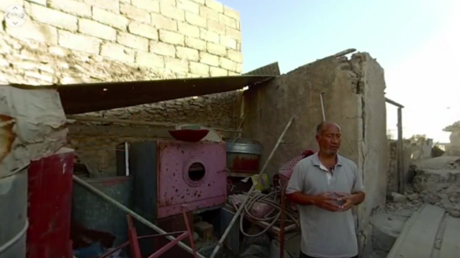Mosul divided: Year after ISIS’ defeat, RT Documentary sees a city festering with hatred & revenge
Mosul – Iraq’s second-largest city and the former Islamic State capital – is still reeling a year after the terrorists were driven out. Bad blood and a thirst for revenge still divide people there.
Islamic State (IS, formerly ISIS) captured Mosul in June 2014 in mere days, sending soldiers and security troops on the run. Many local residents welcomed the jihadists, who promised protection from corruption, plus jobs and security. Later, the promises of prosperity proved false, with rigid rules, intimidation, rape, and public executions a daily routine.
But thousands of people in Mosul still pledged allegiance to IS – some driven by their propaganda, others by hunger or simply fear.
Some of those who worked as IS enforcers or officials survived the siege last year and are still living in the city. The local SWAT police hunt for them every night, raiding houses and questioning family members and neighbors of suspected IS members.
Some in the police don’t hide their hatred for anyone associated with the terrorist group. They have their reasons – IS killed their relatives or friends, and this calls for revenge, they told RT’s documentary crew.
There are similar moods among the Mosul civil defense, whose grim task is to search the ruins left after the siege for bodies. They collect the bodies of IS fighters, which are by now often reduced to mummified carcasses. Saying that this is done unceremoniously would be a great understatement. Some would kick a plastic bag full of remains to express disdain.
And there are many people living in Mosul who face suspicion and outright abuse due to guilt by association. Widows of IS members. Men whose brothers or uncles joined the jihadists. Children of those men. Some 80 percent of families in Mosul had this or that member join the terrorists. And being treated as second-rate people now hardly helps them turn the page on that chapter of their lives.
Watch ‘Mosul: Between War and Peace’, an RT documentary about the festering wounds left in the city by the reign of Islamic State.
Think your friends would be interested? Share this story!














